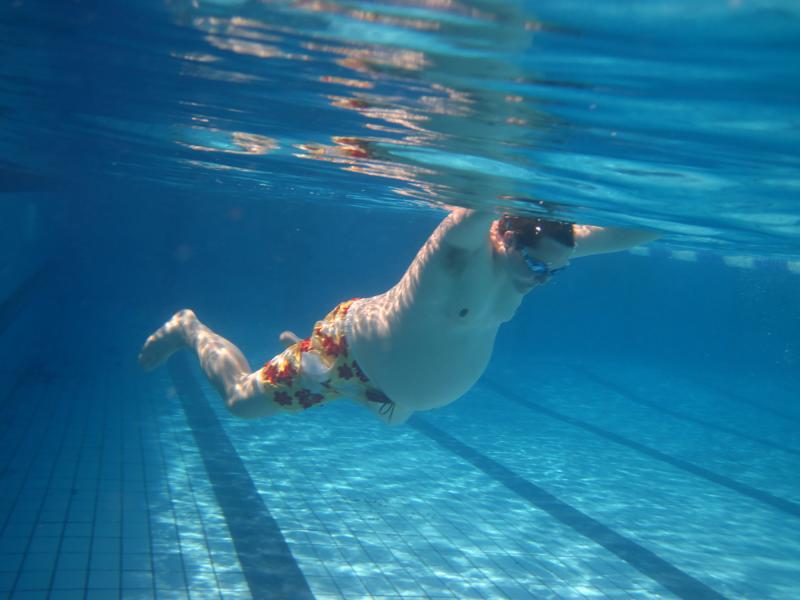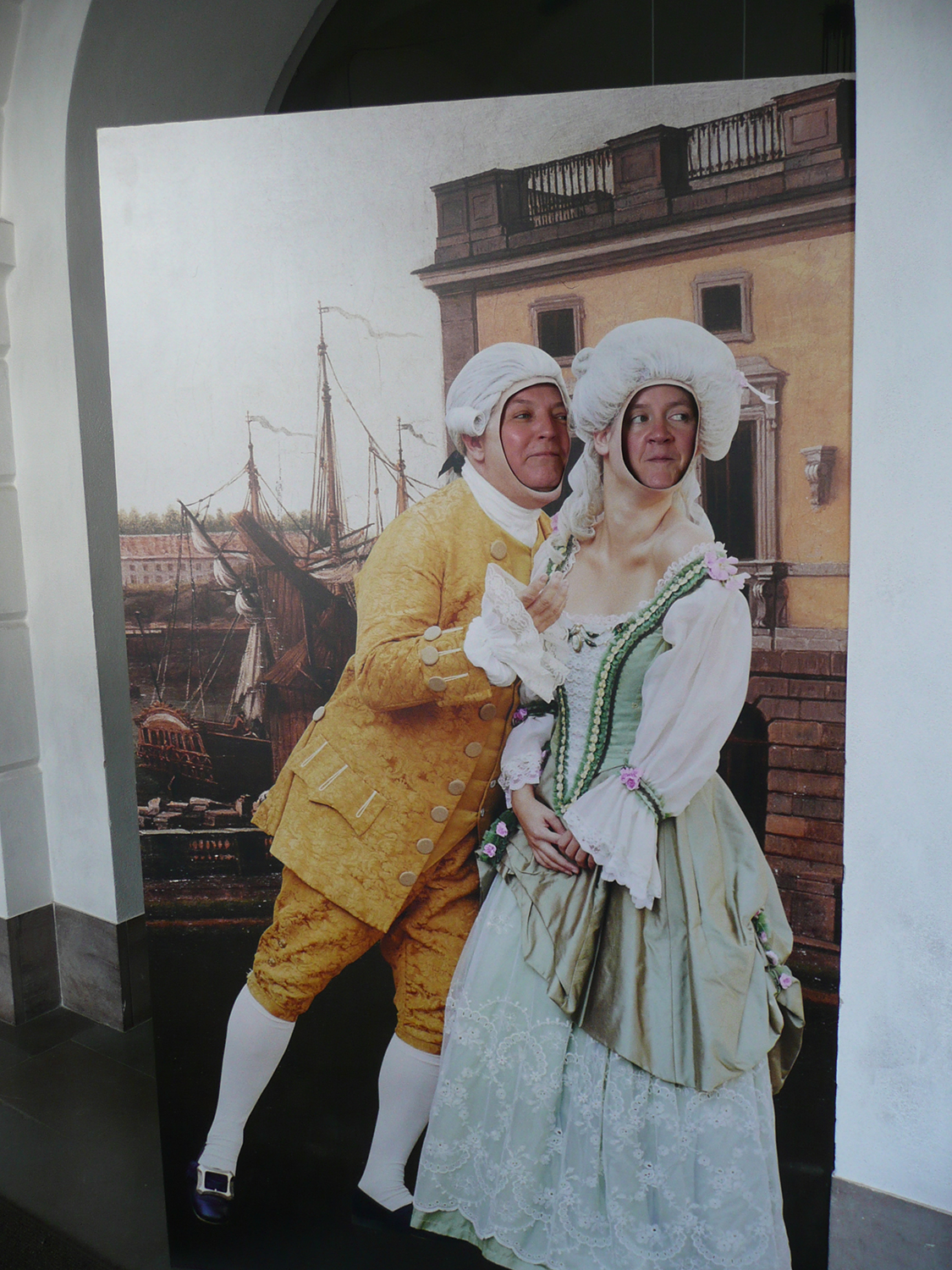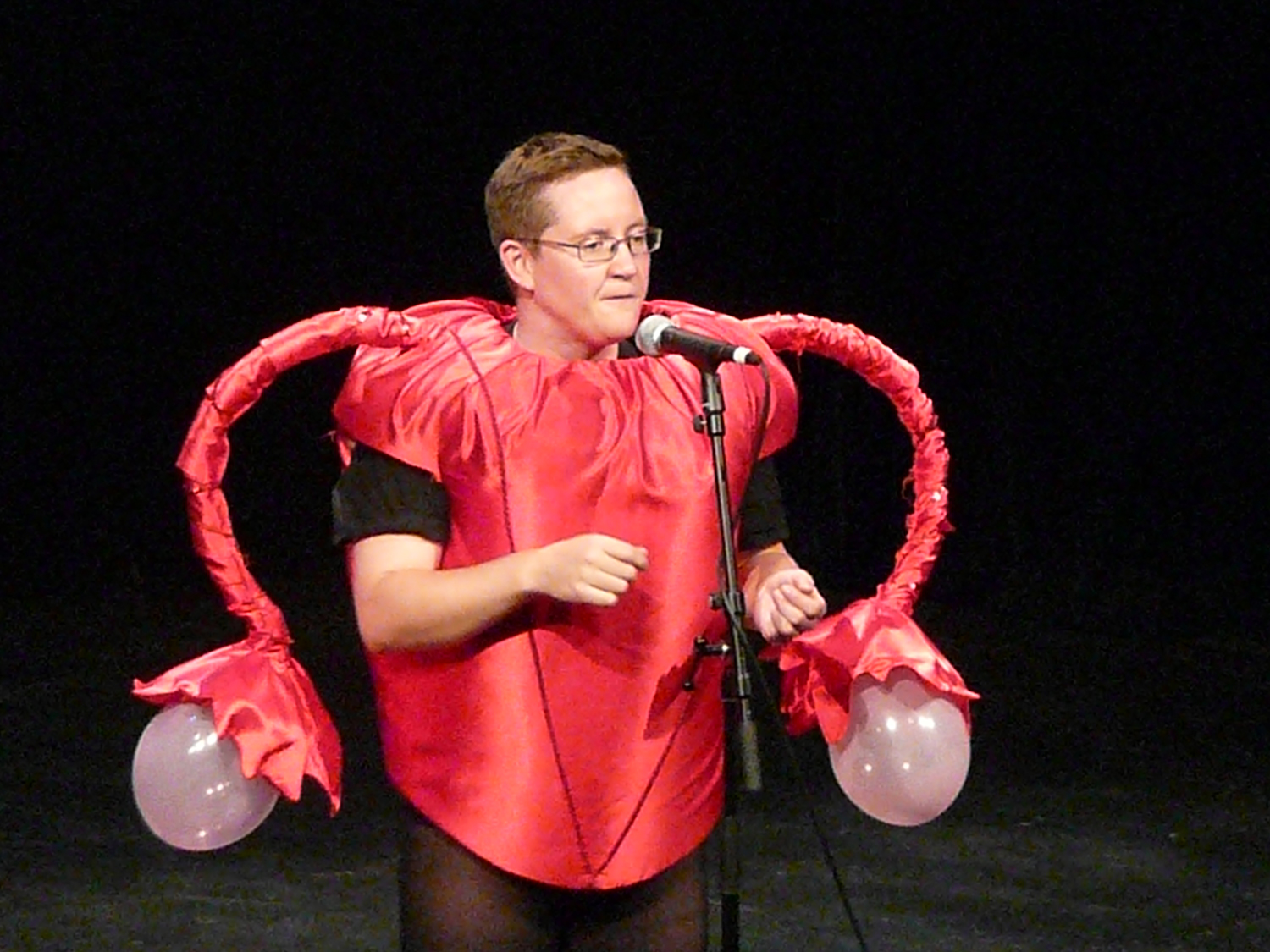Director Jason Barker: ‘Trans lives are often portrayed so bleakly’ | reviews, news & interviews
Director Jason Barker: ‘Trans lives are often portrayed so bleakly’
Director Jason Barker: ‘Trans lives are often portrayed so bleakly’
A Deal with the Universe filmmaker shares the story behind his pregnancy

When Jason and Tracey were trying for a baby, the worst happened. Tracey was diagnosed with breast cancer, and although she eventually recovered, was unable to carry a child. For Jason, the answer was clear - as a trans man, he would become pregnant instead.
The new documentary A Deal with Universe follows Jason and Tracey’s journey as they attempt to conceive. It might sound niche, but in reality, it’s a universal story of love and determination. Like many couples, they struggle with failed IVF treatments and miscarriages; Jason’s gender is almost an afterthought.
Told through home footage, the film debuted at BFI Flare last year and releases in cinemas this Friday. Director Jason Barker spoke with The Arts Desk about sharing this personal journey with the world.
OWEN RICHARDS: Why did you originally start filming?
JASON BARKER: I’d already made some short films before using a similar method. I was often recording friends and events because - particularly pre-camera phone era - LGBT history hasn’t been very well documented. Certain events I was involved in, no-one would video them and they seemed to disappear.
When I got a new camera in 2003, I started videoing with a short film in mind. I came off testosterone with the idea of putting my fertilised eggs into my partner Tracey, and couldn’t see any reason why that wouldn’t work first time. I must’ve thought I was very fertile! I started recording thinking it would either make an interesting short film, or it would be nice to show our kid when they’re older. But then it just went on and on.
 Did you have any apprehensions about opening up your relationship and experiences to the wider world?
Did you have any apprehensions about opening up your relationship and experiences to the wider world?
Well yeah, absolutely, but time has passed. The last bit of footage was nearly 10 years ago. If it was all last month, it might feel a lot more raw, but actually it feels like an archive. It feels quite strange to put yourself on screen, but 10 years ago I feel quite separate from it.
Now you’ve come out the other side, what’s it like looking at everything you went through?
Because I know how it ends, it makes everything much nicer. I remember there was a point when I was still filming, and I was looking at some of the clips, and it was quite heartbreaking. I thought I’ve got an archive of nothing. It’s one thing to go through it all, but to have it all documented made it seem sad.
It’s funny putting yourself on screen, but with this kind of film, that’s the nature of it. You’ve either got to be honest or not do it. That was something Tracey and I spoke about before I started making it: what we’d show and what we wouldn’t show. What you can’t do is think “I don’t like how I look there. I don’t like the shape of my bum, cut that out.” You have to just go for it, and that’s what we both did.
You can see that too. These bodies are just there. They’re not bodies you might normally see on screen. I think about how that must look in these days of selfies. We’ve got quite a lot of control about how we present ourselves, but this film is not like that. It has that rawness.
You’re both very open with your bodies in the film, especially with the medical realities of cancer and IVF. Was that a conscious decision or just how you both are naturally?
I wasn’t keen about making a film about being trans. Obviously, I am trans, but this is a film about the rest of life - not just the before and after transition. Tracey’s body is changing too, we all do, we’re all ageing. I don’t think I’ve ever seen somebody just get on with it like her. I’d hope somebody who is trans might think it’s good watching a trans person get on with life, but also someone seeing Tracey go through cancer and get on with it. She doesn’t hide her body.
I definitely think so. And as you say, the fact your trans doesn’t play a major role in the film. There’s been sensationalist documentaries about this subject before, but not one from such a first-hand insight.
Exactly. I’ve had some really good responses to that. Somebody said recently that they forgot I was trans when they were watching it. It didn’t matter who was who or what. I really like that. We’ve screened it to different audiences, including non-LGBT festivals, and one woman said “I’ve never wanted people to have a baby more than you two.” She’d come expecting one kind of film, and it completely different.
That’s what film is so brilliant at. Allowing you to go into somebody’s life, whether fiction or documentary. It’s the real power of film. That’s so important, because maybe our film has challenged somebody’s prejudice. Seeing that on screen can change minds. The people I would really like to see the film is someone with trans in their family. We’ve met them at screenings, and one of the things they say is: “I’ve never seen trans people being loved before.” Trans lives are quite often portrayed so bleakly, like it’s a sad thing. So ours is a love story.
I don’t know how useful it is when trans people are portrayed as victims. It makes it into this scary thing, but we’re people like anyone else, and we change like everyone else. That’s what I hope people get from the film. Through the film I change, I’m not so sure about things, and that’s the reality. I start the film very sure about myself as a man, and by the end I’m not. It doesn’t mean I’ve de-transitioned, or now I regret what I’ve done, because I don’t regret anything I’ve done. We just all change.
When we talk about identity, there are certain things we’re told we shouldn’t change, like gender or sexuality. But then there are massive parts of identity, like someone’s job can be so tied up to who you are, then you hit a midlife crisis and you start to live your life a different way. When I was a teenager, I was a goth! It was part of my identity. I’m obviously not a goth now, but I don’t regret it, I’m not de-gothed. It was really important at that time, and isn’t so important now. And I believe gender can be more fluid too. I’m a parent, and that’s a whole new identity. A massive one. You speak in the film about some of the pronouns and assumptions made in medicine, and in general life too. Did being pregnant affect how your saw your identity?
You speak in the film about some of the pronouns and assumptions made in medicine, and in general life too. Did being pregnant affect how your saw your identity?
I think it did. I felt fantastic when I was pregnant. I felt like my body was very useful. And of course, we’d waited for so long, that I just went for it and enjoyed it.
A few years ago, I spoke at an older gay men’s social group, and the guy who invited me warned: “some of them are set in their ways, maybe don’t talk about your pregnancy.” But I did talk about it, and they were really interested. Quite a lot of the older guys said they’d have loved to experience pregnancy! And that’s something that I’d never heard, but of course it makes sense. Why wouldn’t somebody love to experience that?
The film focuses on the journey you both went through becoming pregnant, as opposed to the pregnancy itself. Did you film through the pregnancy?
No I didn’t, genuinely for fear of hexing it. When I was first pregnant, a friend of mine wished me a boring pregnancy. That’s a really good wish, because that’s what you want. So, I honestly felt if I started filming, it would be challenging the universe to put an extra twist in the tale.
They say that when you’re pregnant, don’t do anything that you’d blame yourself for if it went wrong. If something happened when I’d be videoing, I’d blame myself. Like I wanted a good ending for my film more than I wanted my pregnancy.
What was the process between the pregnancy and getting to your final cut?
I didn’t do anything with the film for a few years. I’d done a documentary development scheme in the Berlin Film Festival, thinking about this project, but I kept putting it on hold. I wasn’t sure if I wanted to tell this story. There was something really tempting about not telling it at all, keep it our secret - although we’d never kept it secret with our kid. We didn’t like the idea of a big revelation.
Then I performed in a short film, and I really liked the producer Loran Dunn, so I started working with her on this. She’s young, and hadn’t worked on a feature yet, so she brought a real energy to it. She was only eight years old when we started trying to have a baby! She was completely open, but also had brilliant ideas. When we were looking at tapes trying to figure out what the story was, she suggested that I told her the story as if we were sitting on the kitchen floor at 3am, drunk and eating a kebab. She really liked that intimate tone.
Then it was mostly about fundraising. We got some funding from the BFI, then we began editing in 2016. Me and the editor Rachel Meyrick met every day over 3 months. We’re the first production that has the Raising Films kitemark for films made in school hours - we’re both parents, so we could only work between 9.30am-5.30pm.
We had a first screening last year as the centrepiece of BFI Flare. That was great, we had 500 people in NFT1, and it was a really warm crowd. We had a standing ovation - I think that was not only because of the film, but we never really see trans directors. There was a lot excitement. I got a message the other week from somebody who said they hadn’t cried during a film since E.T., but she was really moved by seeing a trans person being loved.
How is fatherhood?
I think it’s ace actually! It goes so quickly. Like my mum said, you have to enjoy every minute of it. It whizzes passed. But parenthood really suits us. We always joked that we were like parents already, going little trips to like deer sanctuaries. It has its challenges, but it’s wonderful.
It really pops your queer bubble, too. Suddenly you’re mixing with people, your chatting to people in playgrounds, standing on the edge of a football pitch. You meet these people you wouldn’t have met before. I’ve made some brilliant friends that I wouldn’t have done. It’s better than I hoped.
Explore topics
Share this article
The future of Arts Journalism
You can stop theartsdesk.com closing!
We urgently need financing to survive. Our fundraising drive has thus far raised £49,000 but we need to reach £100,000 or we will be forced to close. Please contribute here: https://gofund.me/c3f6033d
And if you can forward this information to anyone who might assist, we’d be grateful.

Subscribe to theartsdesk.com
Thank you for continuing to read our work on theartsdesk.com. For unlimited access to every article in its entirety, including our archive of more than 15,000 pieces, we're asking for £5 per month or £40 per year. We feel it's a very good deal, and hope you do too.
To take a subscription now simply click here.
And if you're looking for that extra gift for a friend or family member, why not treat them to a theartsdesk.com gift subscription?
more Film
 The Mastermind review - another slim but nourishing slice of Americana from Kelly Reichardt
Josh O'Connor is perfect casting as a cocky middle-class American adrift in the 1970s
The Mastermind review - another slim but nourishing slice of Americana from Kelly Reichardt
Josh O'Connor is perfect casting as a cocky middle-class American adrift in the 1970s
 Springsteen: Deliver Me From Nowhere review - the story of the Boss who isn't boss of his own head
A brooding trip on the Bruce Springsteen highway of hard knocks
Springsteen: Deliver Me From Nowhere review - the story of the Boss who isn't boss of his own head
A brooding trip on the Bruce Springsteen highway of hard knocks
 The Perfect Neighbor, Netflix review - Florida found-footage documentary is a harrowing watch
Sundance winner chronicles a death that should have been prevented
The Perfect Neighbor, Netflix review - Florida found-footage documentary is a harrowing watch
Sundance winner chronicles a death that should have been prevented
 Blu-ray: Le Quai des Brumes
Love twinkles in the gloom of Marcel Carné’s fogbound French poetic realist classic
Blu-ray: Le Quai des Brumes
Love twinkles in the gloom of Marcel Carné’s fogbound French poetic realist classic
 Frankenstein review - the Prometheus of the charnel house
Guillermo del Toro is fitfully inspired, but often lost in long-held ambitions
Frankenstein review - the Prometheus of the charnel house
Guillermo del Toro is fitfully inspired, but often lost in long-held ambitions
 London Film Festival 2025 - a Korean masterclass in black comedy and a Camus classic effectively realised
New films from Park Chan-wook, Gianfranco Rosi, François Ozon, Ildikó Enyedi and more
London Film Festival 2025 - a Korean masterclass in black comedy and a Camus classic effectively realised
New films from Park Chan-wook, Gianfranco Rosi, François Ozon, Ildikó Enyedi and more
 After the Hunt review - muddled #MeToo provocation
Julia Roberts excels despite misfiring drama
After the Hunt review - muddled #MeToo provocation
Julia Roberts excels despite misfiring drama
 Ballad of a Small Player review - Colin Farrell's all in as a gambler down on his luck
Conclave director Edward Berger swaps the Vatican for Asia's sin city
Ballad of a Small Player review - Colin Farrell's all in as a gambler down on his luck
Conclave director Edward Berger swaps the Vatican for Asia's sin city
 London Film Festival 2025 - Bradley Cooper channels John Bishop, the Boss goes to Nebraska, and a French pandemic
... not to mention Kristen Stewart's directing debut and a punchy prison drama
London Film Festival 2025 - Bradley Cooper channels John Bishop, the Boss goes to Nebraska, and a French pandemic
... not to mention Kristen Stewart's directing debut and a punchy prison drama
 London Film Festival 2025 - from paranoia in Brazil and Iran, to light relief in New York and Tuscany
'Jay Kelly' disappoints, 'It Was Just an Accident' doesn't
London Film Festival 2025 - from paranoia in Brazil and Iran, to light relief in New York and Tuscany
'Jay Kelly' disappoints, 'It Was Just an Accident' doesn't
 Iron Ladies review - working-class heroines of the Miners' Strike
Documentary salutes the staunch women who fought Thatcher's pit closures
Iron Ladies review - working-class heroines of the Miners' Strike
Documentary salutes the staunch women who fought Thatcher's pit closures
 Blu-ray: The Man in the White Suit
Ealing Studios' prescient black comedy, as sharp as ever
Blu-ray: The Man in the White Suit
Ealing Studios' prescient black comedy, as sharp as ever

Add comment